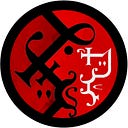EREBUS — Intro

In the fields of Erebus, glory and death are the most bountiful harvests. Or so a famous song says.
The western principality is famous for its martial prowess and the desire to show it off whenever possible.
In the plans of Archdevil Azazel — patron of war, artisan, and flames — this land was supposed to be the starting point for the conquest of all Axam, but history’s path took a different direction.
After centuries of an uncomfortable and subservient alliance, the beast folks fought for independence, all united by the Spirits’ Way, a new religion grown out of old beliefs. They won. But then, they lost. And then they won again. And so on.
For the last five centuries, the Principality and the Beasts’ Nations have been in a pendulum of conquests and retakings, a cyclical war for the region of southern Erebus (Taurides, for the Empire; Arevi for the Beats). During the pauses of this recurring conflict, each people played the part of the occupying oppressor and the freedom rebel in turn, each adamantly certain of their righteousness.
This constant looming conflict shaped Erebus: peace is never long-lasting and armies are never disbanded, making the noble eager to put them to use. Aristocrats are not afraid to set disputes on the battlefield, and the Prince-elector himself turned his army to other principalities during history. Mercenaries and sellswords companies make a base here, confident they’ll never run out of employers.
This militaristic presence trickled down into culture: Erebusians have the stereotype of hotheads prone to violence, stubborn and prickly people ready to settle scores with a knife. There is the joke that tavern brawling is the national sport and the saying “a mean uppercut is the mark of an Erebusian damsel”.
Fighting sports are indeed very popular, rivaling opera as the festivals’ main attractions. Arenas are always crowded, with many events scheduled. Gladiatorial fights are evolved in full-on shows, with fighters using nicknames and gimmicks, with their fans and admirers. Erebusian arenas are also the only place where duels to the death are held, usually between star warriors who want to retire with a bang (and a big pension raised from the bets). Bullfighting is also very popular, both against normal bulls and Plated Ox, a stout and sturdy bovine found in the plains of Taurides. In general, people are happy to see anything or anyone fight anything or anyone: an exotic creature against a felinar hunter, a refined duelist against a dwarven construct, a zombie against bardiche-wielding orcs, etc.
The most famous industry of Erebus is connected to war as well: weapons and armors are the most famous exports, from sophisticated crossbows to sturdy swords, from exquisite armor to heavy and durable shields. Forging and smithing are very diffuse and of high quality: for every object made of metal, you’ll find a dozen masters in the craft, be it making chains, pans, horseshoes, gates, locks, or even nails and pins.
The rich iron and copper deposits of the western Infernal alps fuel the nation’s metalworkers. Zombie workers are common in the mine: criminals, especially traitors, spies, and rebels, are all condemned to an eternal unlife of forced labor. Common criminals are also easily sentenced to work in the mines and forced to share the shafts with shambling undead.
The nobles of southern Erebus pressure Judges (who are part of the Diabolist Church) to give harsher and harsher sentences to always replenish the criminal workforce.
This is one of the many issues the clergy has with Prince Nergal V of house Azazel, who sees the Church (and therefore the Emperor) as annoying weights.
One other point of contention is the reckless experimentations held in the magic academy of Vinea, the capital city.
During the last war against the Beast Nation and the Angels, the prince risked deploying wizards on the battlefield with excellent results: for every magical mishap, there have been at least five battles won by wizards’ actions. Good odds, in the grand scheme of things, but better not mention it to who has been disfigured by friendly fireballs or poisoned by fog clouds gone wrong.
Shamesh, the Prince’s son, has taken on himself to develop war magic focusing in particular on pedagogy: one of the biggest problems with wizard-soldier is the training they need, at least five years to make them somewhat useful… there must be a way to cut down that time!
Results are still scarce, but Shamesh is an optimist. He is sure the Erebusian have magic in their blood: after all arcane magic was born here, with the Evoker studying nature to develop the teaching of the Archdevils.
